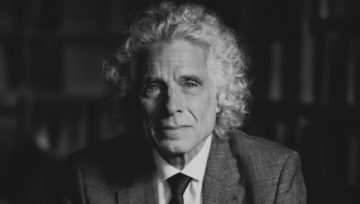Matt Johnson in Quillette:
 Quillette: In Enlightenment Now, you discuss the importance of “norms and institutions that channel parochial interests into universal benefits.” Jonathan Haidt says the nation is the largest unit that activates the tribal mind, whereas Peter Singer says we are on an “escalator of reason” that allows our circle of moral concern to keep expanding. What would you say are the limits of human solidarity?
Quillette: In Enlightenment Now, you discuss the importance of “norms and institutions that channel parochial interests into universal benefits.” Jonathan Haidt says the nation is the largest unit that activates the tribal mind, whereas Peter Singer says we are on an “escalator of reason” that allows our circle of moral concern to keep expanding. What would you say are the limits of human solidarity?
Steven Pinker: I agree that the moral imperative to treat all lives as equally valuable has to pull outward against our natural tendency to favor kin, clan, and tribe. So we may never see the day when people’s primary loyalty will be to all of Homo sapiens, let alone all sentient beings. But it’s not clear that the nation-state, which is a historical construction, is the most natural resting place for Singer’s expanding circle. The United States, in particular, was consecrated by a social contract rather than as an ethnostate, and it seems to command a lot of patriotism.
And while there surely is a centripetal force of tribalism, there are two forces pushing outward against it. One is the moral fact that it’s awkward, to say the least, to insist that some lives are more valuable than others, particularly when you’re face-to-face with those others. The other is the pragmatic fact that our fate is increasingly aligned with that of the rest of the planet. Some of our parochial priorities can only be solved at a global scale, like climate, trade, piracy, terrorism, and cybercrime. As the world becomes more interconnected, which is inexorable, our interests become more tied up with those in the rest of the world. That will push in the same direction as the moral concern for universal human welfare.
More here.
